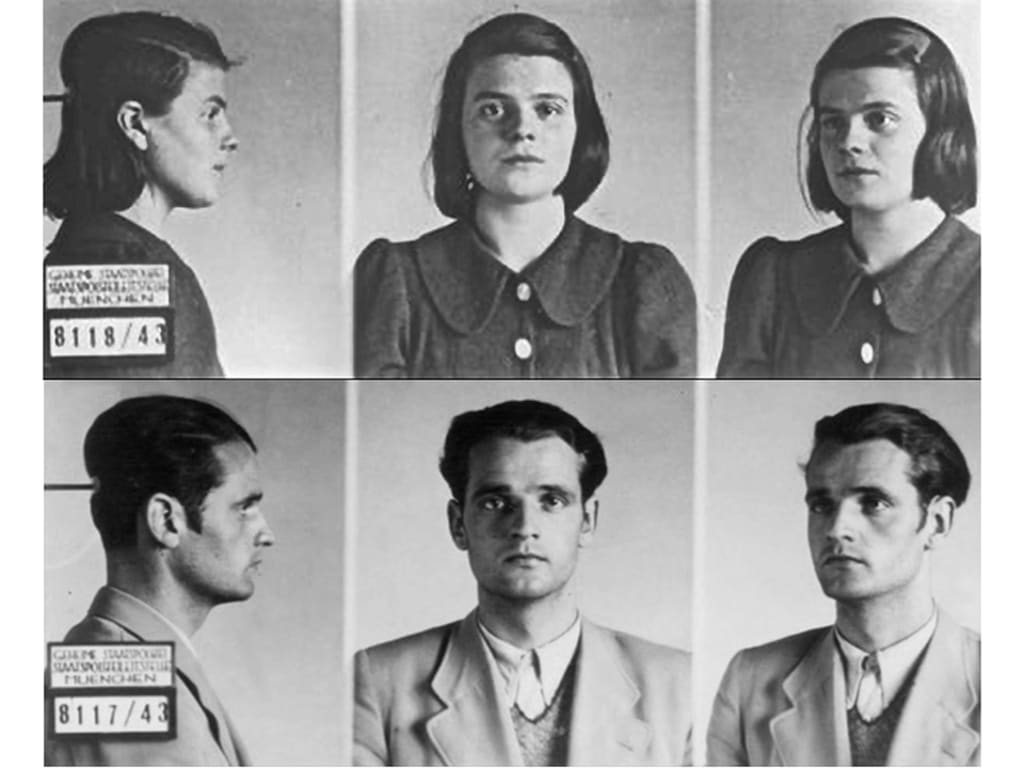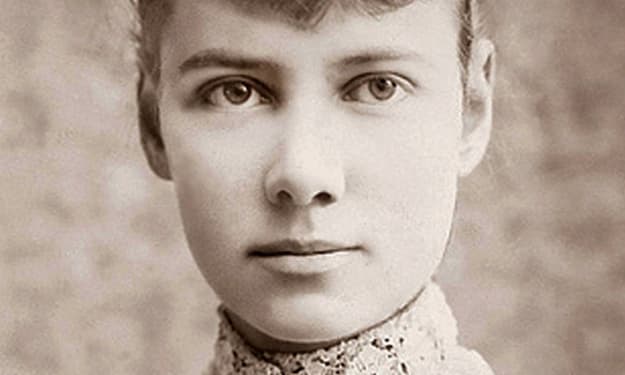Sophie Scholl | Women of History
How a Young Girl Fought the Nazi Party

Over the course of her life, Sophie Scholl learned to question what she was taught, formed her own opinions and political values, rebelled against a fascist government, and fought for the things she believed in -- all before the age of 21. This is the incredible story of Sophie Scholl, the subject of this edition of Women of History.
Sophie was born in Germany in 1921, the daughter of Magdalena (Müller), and a liberal politician and ardent Nazi critic, Robert Scholl. As a young girl, she joined the Bund Deutscher Mädel (League of German Girls), which was a group that nearly all of her peers participated in, but she soon became critical of the ideals of the group. Similarly, her brother Hans initially joined the Hitler Youth, only to become disillusioned with the Nazi Party. Over time, Sophie’s classes in school transitioned from education to Nazi indoctrination; as a result, Sophie started skipping so may of her classes that she nearly didn’t graduate.
After eventually graduating, Sophie became a kindergarten teacher at the Fröbel Institute in Ulm, hoping that it would be recognized as an alternative service in the Reichsarbeitsdienst (National Labor Service). Completing service in the Reichsarbeitsdienst was a prerequisite for admission to university, which was her ultimate goal. However, it turned out that the position did not qualify, so in 1941 she joined the auxiliary war service as a nursery teacher in Blumberg.
After her six month stint in the Reichsarbeitsdienst, Sophie enrolled and joined her brother at the University of Munich. During this time, Sophie and Hans' father was serving time in prison; he had criticized Hitler to one of his employees, and been reported for it.
Partially due to her brother’s influence, Sophie began spending more time with artists, writers, and philosophers, who debated how individuals should act under a dictatorship. Sophie's brother and friends began resisting the Nazi Party, writing and publishing leaflets that called for the toppling of National Socialism. The group called themselves the White Rose.
At first, Hans wanted to keep Sophie away from the White Rose to keep her safe, but eventually decided to recruit her, as the SS was much less likely to stop and search a woman. Sophie began assisting them with writing and distributing the pamphlet, which instructed Germans to passively resist the Nazi government. She also took over managing the group’s finances.
In 1943, Sophie, Hans, and several other members of the White Rose were at the University of Munich. They left stacks of leaflets all over campus, then flung the rest over a banister so they would flutter down the atrium to the bottom floor. Unfortunately, this action was seen by the University janitor, Jakob Schmid, who reported them to authorities.
Sophie and the other members were arrested; Sophie managed to destroy all evidence she had on her; Hans, however, attempted to destroy the draft of a new leaflet by eating it, and was stopped by the Gestapo, who recovered it and realized what it was. When Sophie heard that Hans had been caught with evidence, she attempted to assume full responsibility for the leaflets in order to protect other members of the White Rose
Sophie and the others were charged with treason. To the judge, Sophie argued: “Somebody, after all, had to make a start. What we wrote and said is also believed by many others. They just don't dare express themselves as we did.” It was the only defense any of them were allowed to give; they were all found guilty and condemned to death by guillotine.
At Sophie’s execution, her last words were: "What does my death matter, if through us, thousands of people are awakened and stirred to action?"
Sophie Scholl died for her cause at age 21.
Like Women of History? Check out the story of Nellie Bly, a young journalist who made history!
Thanks for joining Women of History. Want more of this content? Help me write more by leaving a tip!
About the Creator
Shea Keating
Writer, journalist, poet.
Find me online:
Twitter: @Keating_Writes
Facebook: Shea Keating






Comments
There are no comments for this story
Be the first to respond and start the conversation.